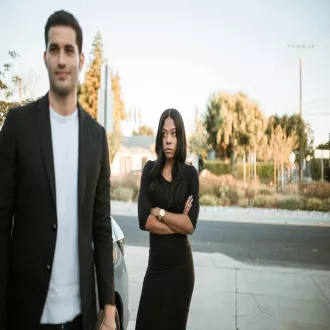Transcription Emotional Conflict: wounds from the past
The complexity of unresolved emotions
Emotional Conflict is the most complex type of dispute, as it is often disguised as other conflicts, making it difficult to identify.
This type of conflict is caused by unresolved emotions and wounds from the past, such as resentment, jealousy, lack of recognition or fear.
Unlike other conflicts that focus on the present, this one is anchored in what already happened and was not healed at the time.
For example, someone may blow up over a minor criticism, but the real reason is that they carry a history of feeling constantly judged.
Similarly, a couple may argue over trivial details, but the real cause is an unhealed wound of previous abandonment.
The aggressiveness that arises in these situations is usually a manifestation of the other person's fear or frustration because he or she does not understand how to process his or her feelings or communicate his or her needs.
Passive-aggressive people, for example, are often afraid of confrontation, but do not know how to communicate their needs, leading them to express their resentment indirectly.
Resolution strategies: empathy, validation and healing.
Resolving an emotional conflict requires going beyond the superficial facts and working with empathy to validate the emotions of the other.
The key is not to debate the validity of feelings, but to acknowledge and accept them.
To do this, it is essential to create a safe environment where the person can express themselves without fear of being judged.
Active listening is crucial, as it allows the other person to feel heard and understood, which reduces tension and resentment.
Forgiveness is a powerful tool to release the emotional burden of this type of conflict.
Forgiveness does not mean forgetting what happened, but letting go of resentment and anger in order to heal and move forward.
Holding on to resentment is like "a fire that consumes both the one who harbors it and his or her environment," feeding a destructive cycle of misunderstandings and confrontations.
In many cases, this type of conflict requires deeper support, such as the help of a therapist or professional, as healing from trauma or emotional shortcomings can be a long and complex process.
The goal is not to win an argument, but to restore understanding and, if possible, the relationship.
Self-care is also a vital strategy, as it allows you to protect yourself from emotional exhaustion and resentment, even if the other person is unwilling to change.
Summary
Emotional Conflict is the most complex, as it is often disguised as other conflicts. It originates from unresolved emotions and past hurts, such as resentment, jealousy or fear, and not from the present event.
For example, someone may explode over a minor criticism, but the real reason is that he or she has a history of feeling constantly judged. The aggression that arises is often a manifestation of the other's fear or frustration.
Resolving it requires going beyond the facts and using empathy to validate the other's emotions. The key is not to debate, but to acknowledge and accept their feelings in a safe environment in order to heal.
emotional conflict wounds from the past




